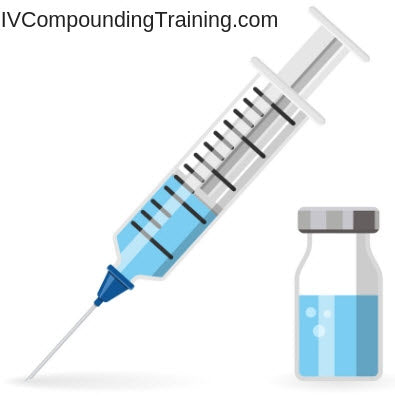How To Get CSPT Certification
How to Get CSPT Certification: A Step-by-Step Guide
The healthcare industry relies heavily on certified professionals to ensure safety and accuracy in patient care. Among these professionals are pharmacy technicians, who play a critical role in preparing and managing medications. For pharmacy technicians seeking to specialize in sterile compounding, earning the Certified Compounded Sterile Preparation Technician (CSPT) credential is an excellent way to advance their career and demonstrate their expertise. Administered by the Pharmacy Technician Certification Board (PTCB), the CSPT certification is highly regarded and establishes a technician's commitment to excellence in sterile compounding.
This article outlines the steps to earning the CSPT certification, including eligibility requirements, the application process, and tips for success.
What Is CSPT Certification?
The Certified Compounded Sterile Preparation Technician (CSPT) credential is designed for pharmacy technicians specializing in sterile compounding. Sterile compounding involves preparing medications in a sterile environment to prevent contamination, a critical step for ensuring patient safety. This process is often used for medications such as intravenous (IV) drugs, chemotherapy treatments, and other preparations that are directly introduced into the body.
CSPT certification is offered by the Pharmacy Technician Certification Board (PTCB), a nationally recognized organization dedicated to certifying pharmacy technicians. Earning this credential demonstrates that a pharmacy technician has advanced knowledge and skills in sterile compounding and adheres to the highest safety standards.
Why Pursue CSPT Certification?
Becoming CSPT certified offers several benefits:
- Specialization: It allows pharmacy technicians to specialize in a high-demand area of the field.
- Career Advancement: CSPT-certified technicians often have more opportunities for promotions or higher-paying roles.
- Credibility: The CSPT credential assures employers and healthcare institutions that the technician is highly skilled in sterile compounding.
- Compliance: Many healthcare facilities require sterile compounding technicians to hold advanced certifications to meet regulatory standards.
If you’re a certified pharmacy technician who wants to stand out in your profession, earning the CSPT certification is an excellent step.
Sign Up For The PTCB-Recognized Training Here
Steps to Get CSPT Certification
The process of becoming a Certified Compounded Sterile Preparation Technician involves meeting specific eligibility requirements, completing an application, and passing a comprehensive assessment. Here’s a detailed guide on how to achieve CSPT certification:
1. Meet Eligibility Requirements
Before applying for the CSPT certification, you must meet PTCB’s eligibility criteria. These include:
- Active PTCB CPhT Certification: You must hold an active Certified Pharmacy Technician (CPhT) certification from PTCB. The CPhT credential is a prerequisite for applying for the CSPT.
- Education and Training: You must have completed a PTCB-recognized sterile compounding education/training program OR have equivalent work experience in sterile compounding.
- Work Experience: A minimum of one year (or 1,000 hours) of work experience in sterile compounding is required. This experience must be documented and verified with your employer.
Ensure you review PTCB’s official guidelines to ensure you meet these requirements before submitting your application.
2. Submit an Application
Once you’ve confirmed your eligibility, the next step is to submit your application through the PTCB website. The application process typically involves:
- Providing Documentation: You’ll need to submit proof of your sterile compounding education, training, and work experience.
- Paying the Application Fee: The CSPT application fee is $149 (as of 2023, but verify for current pricing).
After submitting your application, PTCB will review your materials. If approved, you’ll be eligible to take the CSPT exam.
3. Pass the CSPT Exam
The CSPT exam is designed to assess your knowledge and skills in sterile compounding. It covers topics such as:
- Sterile compounding regulations and standards (e.g., USP <797> guidelines)
- Aseptic technique
- Quality control and assurance
- Hazardous drug preparation and handling
- Equipment and facility maintenance
The exam consists of multiple-choice questions and focuses on practical applications of sterile compounding principles. To prepare, consider studying PTCB’s recommended resources, reviewing USP <797> guidelines, and taking practice exams.
Sign Up For The PTCB-Recognized Training Here
4. Complete Competency Attestation
After passing the CSPT exam, you’ll need to complete a Competency Attestation Form. This document must be signed by your supervisor or employer to confirm your competence in sterile compounding tasks.
5. Maintain Your CSPT Certification
Once certified, you must maintain your CSPT credential by meeting PTCB’s recertification requirements every year. These typically include:
- Continuing Education (CE): Complete 5 hours of sterile compounding-specific CE activities.
- Active Practice: Continue working in sterile compounding to remain eligible for recertification.
- Renewal Fee: Pay an annual renewal fee to maintain an active certification.
Tips for Success
To improve your chances of earning the CSPT credential, follow these tips:
- Gain Hands-On Experience: Spend time working in a sterile compounding environment to build your skills and confidence.
- Study Thoroughly: Use PTCB’s study materials and guidelines to prepare for the CSPT exam.
- Stay Organized: Maintain detailed records of your work experience, training, and continuing education (CE) activities.
- Ask for Support: Seek guidance from colleagues or mentors who are already certified in CSPT.
Conclusion
Becoming a Certified Compounded Sterile Preparation Technician (CSPT) is a rewarding career step for pharmacy technicians looking to specialize in sterile compounding. By earning this credential through the Pharmacy Technician Certification Board (PTCB), you demonstrate your commitment to safety, accuracy, and professionalism in the field.
With the growing demand for skilled sterile compounding technicians, CSPT certification not only enhances your career prospects but also strengthens patient safety. Follow the steps outlined above to achieve this prestigious certification and take your career to the next level.
